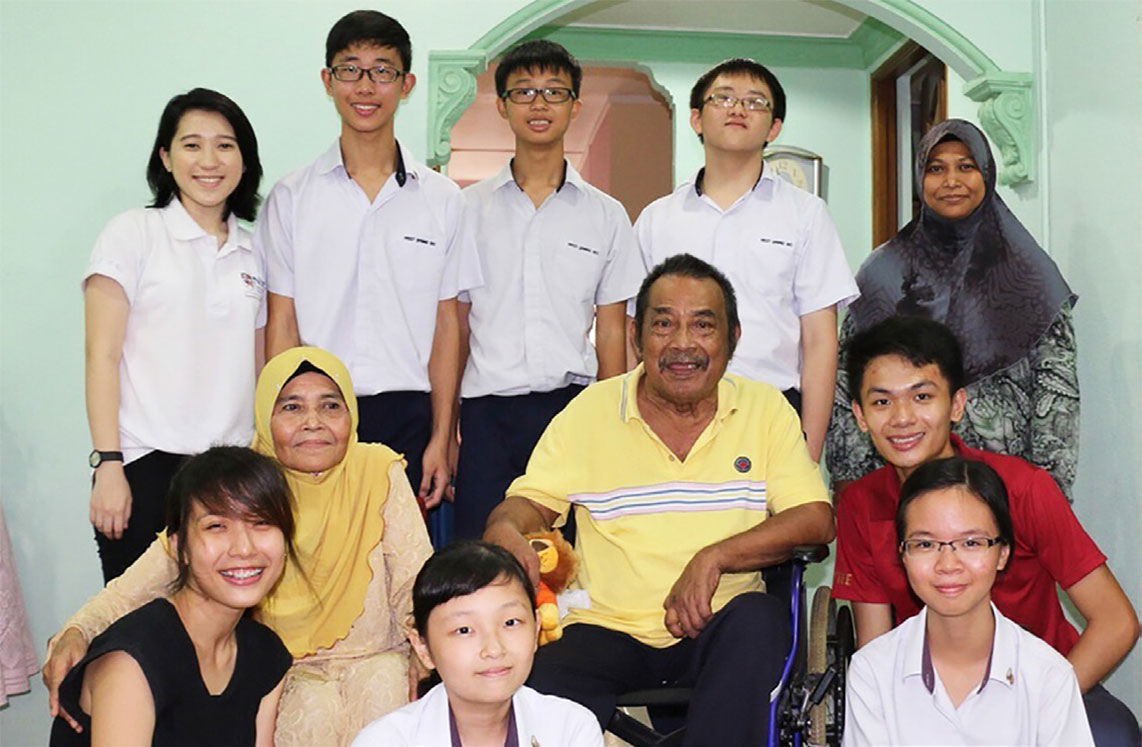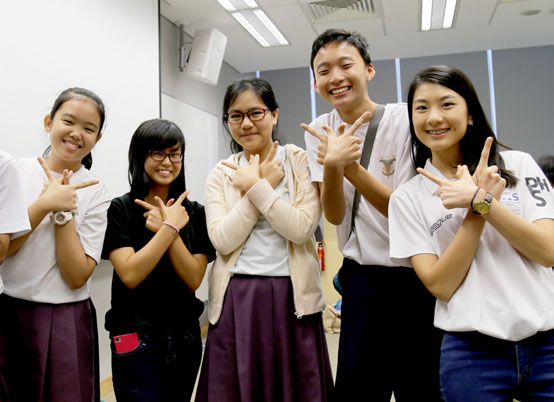The rapidly ageing population in Singapore is set to create challenges in her healthcare system. The elderly, especially those suffering from chronic diseases will require multi-disciplinary clinical management and long-term medications. Some of them will have added social issues such as lack of family support and many may come from low income families. Under this climate, it is a possibility that they become more susceptible to depression and many find it difficult to grow old in Singapore.
With a strong desire to serve the elderly, a group of NUS Medicine students decided to act as advocates for these vulnerable and less fortunate people in our community. Tri-Generational HomeCare @ North West is a groundbreaking student-led community project where students provide holistic medical and social care to vulnerable seniors via regular home visits. They see themselves playing some of the roles of loved ones in assessing the needs of the elderly, meeting these needs and coordinating the care of the elderly.
In collaboration with Alexandra Health System’s (AHS) Ageing-In Place (AIP) Programme and North West Community Development Council (NWCDC), NUS students from Nursing, Medicine, Pharmacy and Social Work lead small teams of secondary school students to visit homes of elderly patients over a span of six to seven months.
One of the aims is to provide opportunities for secondary school students to be equipped with theoretical knowledge and practical skills in the care of the elderly through the workshops planned. More importantly, they hope to inculcate important values such as compassion and respect in students. This project is based on the service-learning concept where community service is used as an opportunity to enrich classroom learning. During these visits, these two generations of students engage the senior generation of patients by building rapport, assessing their home environment and providing patient education, amongst other patient-centric care measures.
To prepare for the home visits, healthcare professionals and specialists from AHS’s AIP Programme and NWCDC impart communication and caregiving skills to the NUS students who then share what they have learnt with their secondary school juniors. Learning comes full circle after the home visits are completed when students present their feedback and recommendations to the healthcare professionals at multi-disciplinary meetings.
Such teaching and learning, where students from different disciplines step out of their classrooms into the community to acquire knowledge and skills while serving the needs of the elderly population, is inter-professional education and authentic learning at its finest.

From identifying the healthcare needs in the community, to collaborating with community and healthcare partners, to training secondary school youths – our NUS students have created a refreshing synergy of partnerships at multiple social and institutional levels. This bottom-up and community-based approach towards education and healthcare, whereby members of the community step up to teach and care for each other, provides a promising future for Singapore’s education and healthcare landscape. Due to the resounding success of the project, there are plans to expand this initiative to other institutions such as the National University Health System. As the demographic landscape of Singapore evolves to be one where aged dependency is growing against a declining fertility rate, Tri-Generational HomeCare @ North West paints a unique and optimistic picture of how students and community actors in education and healthcare can address these demographic concerns.
Bibliography:
-
National University of Singapore, (2 July, 2015), “HomeCare support takes flight”, NUS News Highlights (online).
Available here -
Ministry of Health, Singapore, (18 August, 2015), “Opening Speech by Mrs Tan Ching Yee, Permanent Secretary (Health) at the Singapore Healthcare Management Congress, 18 August 2015”, MOH Press Room News Highlights.
Available here

